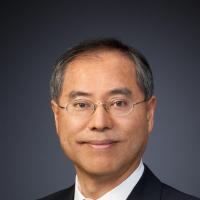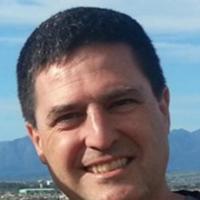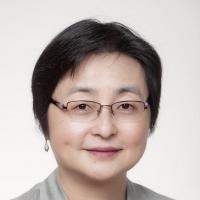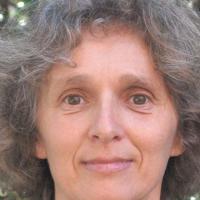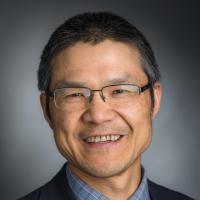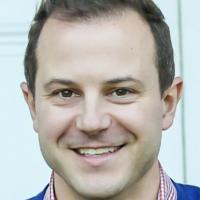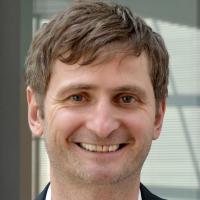Featured Speakers
Featured Speakers
Matthew Meyerson, MD, PhD (keynote)
- Dana Farber Cancer Institute, Harvard University, USA
Dr. Meyerson is professor of Genetics and Medicine at Harvard Medical School, director of the Center for Cancer Genomics at the Dana-Farber Cancer Institute, and an Institute member of the Cancer Program at the Broad Institute. His laboratory at the Dana-Farber Cancer Institute has focused on understanding the cancer genome and its implications for cancer therapeutics.
Over the past decades, Dr. Meyerson and colleagues have discovered genes and gene alterations important in human cancer, including the human cyclin-dependent kinase family including CDK2 and CDK6, the human telomerase catalytic subunit gene TERT, somatic mutations in lung cancer in EGFR, U2AF1, RBM10, HLA genes and others, somatic mutations in glioblastoma in EGFR, and copy number alterations across cancer including lineage amplifications. The current focus of the Meyerson laboratory is on somatic alterations in the non-coding cancer genome, on the cancer microbiome, and on genome-inspired cancer drug discovery.
The Meyerson laboratory has pioneered technical and computational approaches for cancer genome research, including methods for copy number determination with single nucleotide polymorphism (SNP) arrays, the first next-generation sequencing analysis of cancer DNA and the computational subtraction approach for discovery of novel disease-causing microbes. Dr. Meyerson’s laboratory discovered the association of Fusobacterium with colorectal carcinoma, simultaneously with the Holt laboratory; Dr. Meyerson now co-directs a Cancer Research UK Grand Challenge project on the cancer microbiome, with Wendy Garrett.
Dr. Meyerson received his MD from Harvard Medical School and his PhD from Harvard University. He served as a resident in Clinical Pathology at Massachusetts General Hospital and a post-doctoral fellow at the Whitehead Institute with Dr. Robert Weinberg. Among other prizes, Dr. Meyerson has been awarded the Paul Marks Prize in Cancer Research from Memorial Sloan-Kettering Cancer Center, the Team Science Award from the American Association for Cancer Research, and the Knudson Prize in Cancer Genetics from the National Cancer Institute. Dr. Meyerson is an elected member of the National Academy of Medicine, the Association of American Physicians, and the American Society for Clinical Investigation and a Fellow of the American Association for the Advancement of Science.

Emma Allen-Vercoe, PhD
- University of Guelph, Canada
Dr. Allen-Vercoe obtained her BSc (Hons) in Biochemistry from the University of London, and her PhD in Molecular Microbiology through an industrial partnership with Public Health England. She started her faculty career at the University of Calgary in 2005, with a Fellow-to-Faculty transition award through CAG/AstraZeneca and CIHR, to study the normal microbes of the human gut. In particular, she was among the few scientists that embraced the culture of these ‘unculturable’ microbes in order to better understand their biology. To do this, she developed a model gut system to emulate the conditions of the human gut and allow communities of microbes to grow together, as they do naturally. As part of this work, she has had a longstanding interest in the biology of Fusobacterium spp., and has developed a large bank of F. nucleatum isolates from the human gut and mouth in order to study how these very heterogenous strains interact with the host in diseases such as IBD and colorectal cancer. Emma moved her lab to the University of Guelph, Canada in late 2007, and is a recipient of several Canadian Foundation for Innovation Awards that allowed her to develop her specialist anaerobic fermentation laboratory further. Recently boosted by the award of a Tier 1 Canada Research Chair in Human Gut Microbiome Function and Host Interaction. In 2013, shea co-founded NuBiyota, a spin-off company that aims to create therapeutic ecosystems as biologic drugs, on a commercial scale. The research enterprise for this company is also based in Guelph.

Hideo Baba, MD, PhD
- Kumamoto University, Japan
Dr. Hideo Baba is a gastroenterological surgeon and heads the Department of Gastroenterological Surgery at the Graduate School of Medical Sciences Kumamoto University. Additionally, he is the director of Kumamoto University Hospital, and is the congress president of The 122nd Annual Congress of Japan Surgical Society.
Dr. Baba obtained his undergraduate and medical degrees and PhD from Kumamoto and Kyushu University in Fukuoka respectively and underwent practical and technical training at several major hospitals in Kyushu, Japan. He further polished up his skills and knowledge during a surgical oncology fellowship training at the University of Texas.
In 2005, he was appointed professor of the newly established Department of Gastroenterological Surgery at Kumamoto University and started establishing it as a leading place of research in the fight against gastroenterological cancers in Japan. Since he has spared no effort to build up a network of cooperation between Kumamoto and other outstanding centers of research in Japan and abroad.

Gilad Bachrach, PhD
- Hebrew University, Israel
Dr. Bachrach is a microbiologist at the Institute of Dental Sciences of the Hebrew University-Hadassah School of Dental Medicine in Jerusalem. He is investigating the involvement of bacteria in tumor acceleration and the possible use of bacteria for cancer therapy. He received his BSc, MSc, and PhD from the Hebrew University in Jerusalem. Was a post doctorate fellow at the National Institute of Medical Research in London where he investigated molecular mechanisms involved in the virulence of Mycobacterium tuberculosis and in the National Institutes of Health (USA) where his interest in fusobacteria begun.

Wendy Garrett, MD, PhD
- Dana Farber Cancer Institute, Harvard University, USA

Yiping Han, PhD
- Columbia University, USA

Robert Holt, PhD
- University of British Columbia, Canada

Jie Hong, PhD
- Shanghai Jiaotong University School of Medicine, China
Dr. Jie Hong works as Principal Investigator in Renji Hospital affiliated with Shanghai Jiao Tong University School of Medicine and Shanghai Institute of Digestive Disease, State Key Laboratory for Oncogenes and Related Genes. The research project of her group mainly focuses on digestive disease research. Dr. Hong has devoted recent years to studying the colorectal cancer/adenoma recurrence and gastric carcinogenesis molecular mechanisms by means of biochemical and molecular biology analysis and high-throughput sequencing technology. She has authored and co-authored more than 18 papers published in journals including Cell, Cancer Discovery, Gut, Nature Communications, Molecular Cancer, Cancer Research, and Clinical Cancer Research. She has acquired the second prize of national scientific and technological progress of China and other national and provincial awards support.

Renate Lux, PhD
- UCLA, USA

Shuji Ogino, MD, PhD
- Brigham and Women’s Hospital and Harvard University, USA
Dr. Shuji Ogino is the founding Chief of Molecular Pathological Epidemiology (MPE) Program, Brigham and Women’s Hospital; Professor of Pathology, Harvard Medical School; Professor (Epidemiology), Harvard T.H. Chan School of Public Health; and Associate Member of Broad Institute of MIT and Harvard.
Dr. Ogino established the International MPE Meeting Series in 2013 and has been serving as its Chair/Co-Chair. He spearheads the integrative scientific field of MPE, to study the interactive roles of environment (i.e., the exposome), microbiome, immunity, and tumor in carcinogenesis. He conducts multifaceted MPE studies using large-scale prospective cohort studies, having discovered the link between fiber-poor /inflammatory diet and higher incidence of colorectal cancer enriched with Fusobacterium nucleatum as well as evidence for suppressive effect of F. nucleatum on T-cell-mediated antitumor immunity.

Daniel Slade, PhD
- Virginia Tech University, USA
Dr. Daniel J. Slade is an assistant professor at Virginia Tech with training in chemistry, biochemistry, microbiology, molecular genetics, enzymology, and host-pathogen interactions. The long-term goal of his laboratory is to characterize how bacteria from the oral cavity disseminate to extraoral sites to participate in infection and cancer. His work is highly interdisciplinary and is incorporating biomedical engineering to understand how Fusobacterium nucleatum contributes to multiple cancers, including its role in the modulation of cancer severity, apoptosis inhibition, metastasis, and other uncharacterized molecular mechanisms. A continuing theme of his laboratory is to develop and improve genetic systems for successful chromosomal DNA editing in Fusobacterium.

Hung Ton-That, PhD
- UCLA, USA

Jorg Vogel, PhD
- University of Wurzburg, Germany
Professor Jörg Vogel is the founding director of the Helmholtz Institute for RNA-based Infection Research (HIRI) as well as the director of the Institute of Molecular Infection Biology (IMIB) at the University of Würzburg, Germany. In January 2021 he became president of the European Academy of Microbiology (EAM). As world-leading scientist in the field of RNA biology, Jörg Vogel is considered a pioneer in the application and development of high-throughput sequencing methods for the analysis of individual infected cells as well as interactions between pathogenic bacteria and their hosts.
His laboratory investigates the diversity of noncoding RNA functions and RNA-binding proteins in major bacterial pathogens and in bacteria that make up the human microbiome. Vogel’s work focuses on several bacteria from Salmonella Typhimurium to anaerobic microbes that are associated with colorectal cancer such as Fusobacterium nucleatum, and developing RNA deep sequencing-based techniques to capture the RNA world of any microbe, ideally at the single-cell level. Ultimately, his work aims to understand how and why bacteria use RNA as a regulator during infection, and exploit this knowledge to develop programmable RNA antibiotics that target pathogens and edit the microbiota with precision.



